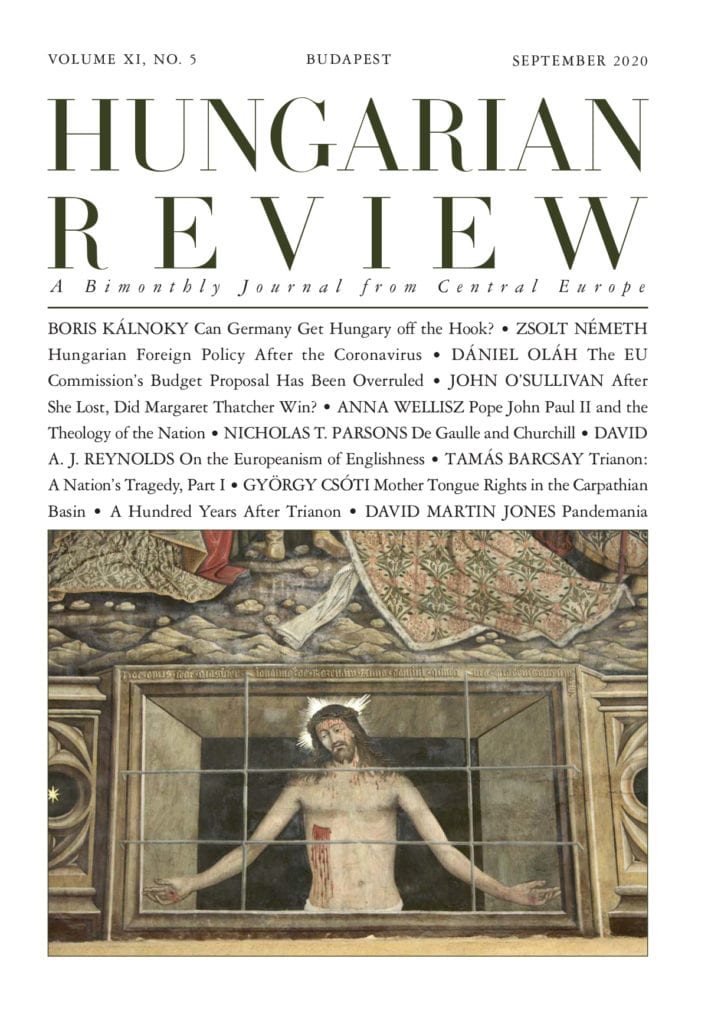HUNGARIAN FOREIGN POLICY AFTER THE CORONAVIRUS
“What is the trend and magnitude of the changes Hungarian foreign policy will be forced to implement as the world emerges from the coronavirus crisis? Are we going to be

“What is the trend and magnitude of the changes Hungarian foreign policy will be forced to implement as the world emerges from the coronavirus crisis? Are we going to be
“‘Rule of Law’ has become the battle cry of our times in the arena of European politics. Accompanied by spectacular rhetorical theatrics of leading politicians whenever the media are around,
“The Eurozone was already in a fragile condition when the coronavirus pandemic struck, so at the instigation of France and Germany, a major €750 billion support and recovery fund was
Ever since the Polish Minister of Justice, Zbigniew Ziobro, announced at a press conference towards the end of July 2020 that Poland wished to withdraw from the agreement commonly known
“Next to Italy and Spain, France has been the Eurozone country worst hit by the coronavirus pandemic, with 29,000 deaths as of early June 2020. The number of seriously ill
One of the many curious features of coronavirus, declared a pandemic by the World Health Organisation in March 2020, was the belief that the outbreak was unprecedented. The mainstream Western
If you are an Englishman living on the European mainland, you will no doubt have come across the idea that England is a conservative relic; an impression that either charms
The year 2020 marks the centennial of John Paul II, the 100th birthday of Karol Wojtyła, future Pope, poet, Polish patriot and saint. He was born in a Poland where
Patriotism is when love of your own people comes first; nationalism,when hate for people other than your own comes first.Charles de Gaulle1 You have enemies? Good.It means you’ve stood up
“AT THE GATES OF HEAVEN OR HELL?” THE SOVIET UNION IN THE 1930s Only with some knowledge of the political environment into which he arrived on 22 June 1934 is
By most historical standards 1989 should have been a year of triumph for Margaret Thatcher – and judged in a historical perspective, it was exactly that. It was the year
4 June 1920 is not a date which rings the bells of memory for most people in Europe or elsewhere; it should. For the treaty signed on that day in
„A nation’s life lies in its language.” The truth of this maxim was obvious to the prominent figures of the Hungarian Reform Era, particularly Ferenc Kazinczy and István Széchenyi, who
ANTAL BABUS (Gyöngyös, 1960) literary historian, librarian. Graduated from Debrecen University (KLTE) in 1984 majoring in Hungarian and Russian Philology. He obtained his PhD from the same university in 2002.